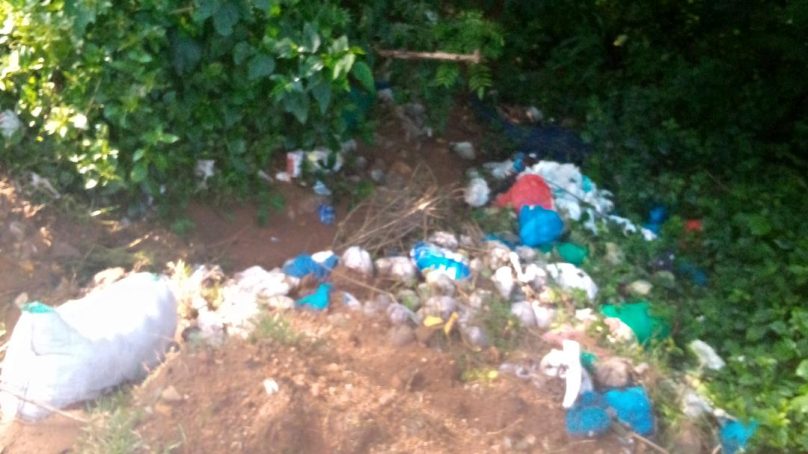
Unregulated baby diaper disposal has been a longstanding issue in many towns in Migori County that is eliciting the wrath of residents as health experts warn of ever-looming threats to public health as a result of pollution.
The Ministry of Health says Migori County loses Ksh800 million ($6.2 million) annually due to poor sanitation, including losses related to solid waste management – and poor baby diaper disposal stands out. The ministry says in its 20024 annual report that uncontrolled waste disposal, in particular in Kadika neighbourhood of Migori Town, diapers are dumped on the roadsides and footpaths, which puts at risk the lives of local people.
Besides the health hazards, the ministry says, the diapers that are strewn all over the town are an eyesore. As a result of unregulated disposal – blamed on indifferent county leadership – a local resident Milka Odeny says, says used diapers attract flies and other disease vectors that broadcast cholera and other dangerous diseases.
Migori – like Homa Bay and Kisumu that in the same geographical zone – experiences frequent outbreaks of cholera that is linked to poor hygiene and sanitation, especially in urban settlements. Urban dwellers are now calling for urgent intervention by health and environmental authorities to address public hygiene and sanitation.
Migori County Director National Environment Management Authority (NEMA) Tom Togo says there are national policies that address diapers and other biodegradable material that should be involved by the county government to resolve diaper pollution concerns.
“We only need collaboration with the county government and the public to manage waste in Kadika and elsewhere, to protect the environment in line with the 2010 Constitution. The constitution gives the county government powers to enforce public health mandates. It’s the responsibility of the county government to manage solid waste,” Togo explains.
NEMA, as an environmental watchdog, has also been active in creation of awareness of the risks posed by wanton diaper discharge. In some instances it has collaborated with county government to address the diaper menace through public education on sanitation and hygiene.
NEMA has designated dumpsites for used diapers, from where they are collected to minimise environmental pollution and to promote public health.
Togo says that, while the county government works day and night to manage the collection of wastes, it lacks the capacity to enforce environmental laws to check baby diaper pollution. Consequently, it faces an uphill task in controlling uncoordinated dumping as a means of enforcing public health regulations to stamp out the menace.
“There are penalties that exist for illegal waste disposal by the public, but they are not enforced. The penalties can be used help limit haphazard discharge of diapers in local towns,” he said.
Unregulated baby diaper disposal in Migori County is attributed to a combination of social, economic and infrastructural factors such as rising population as a result high fertility rates and rapid urbanisation that is not matched with requisite amenities.
Rapid urbanisation results in overcrowding as families struggle to find spaces for hygienic disposal of diapers.
There is lack of understanding among caregivers and parents of the environmental and health consequences associated with insanitary diaper disposal. Used diapers contain harmful pathogens and can trigger further health risks if not managed appropriately by parents and caregivers.
Sanitisation Department at Migori Referral Hospital In-Charge Kenneth Otumu, says, “Due to the improper baby diaper disposal contributed to an outbreak of cholera in the region that caused the death of 53 people and more people were hospitalised (early this year).”
Pungent odour from diapers pollutes the air, which in turn affects business and social life.
In response to the rotting “diaper crisis”, the county government has responded with the provision of sanitary bins for diapers, making it more convenient for people to discharge them safely.
The local government has also launched educational campaigns to inform parents about proper disposal of these used diapers and also carrying out assessments and baseline surveys, which target various population cohorts in town and through feedback from the surveys decisions are made.
Victor Ouso, an environmental officer in-charge of waste management in Migori County observes, “Waste management is their key issue as they are responsible for waste collection, refuse dumping and disposal.”
He adds, “Garbage collectors work with a routine for waste collection during which trucks move from one place to another to collect garbage and move it to where is processed. Some of it is burnt.
- A Tell Media / KNA report / By Truphena Ombasa and George Agimba







